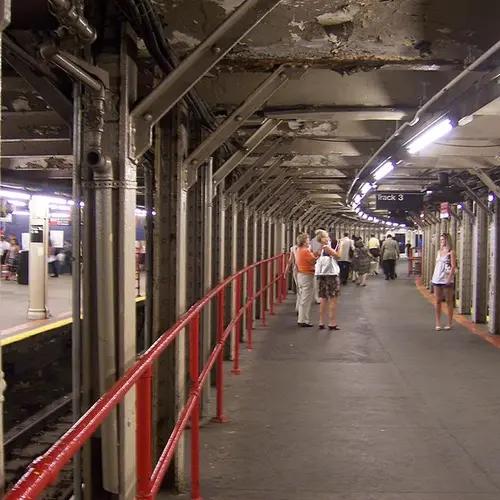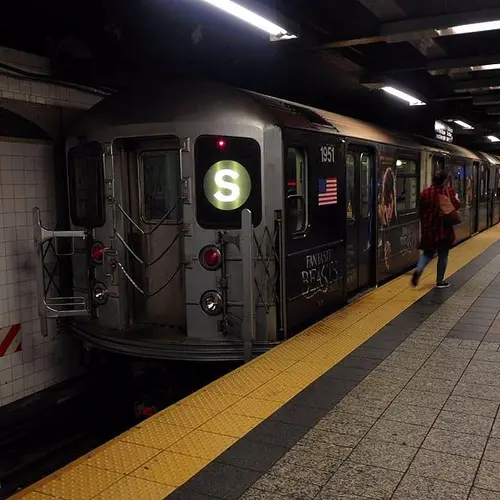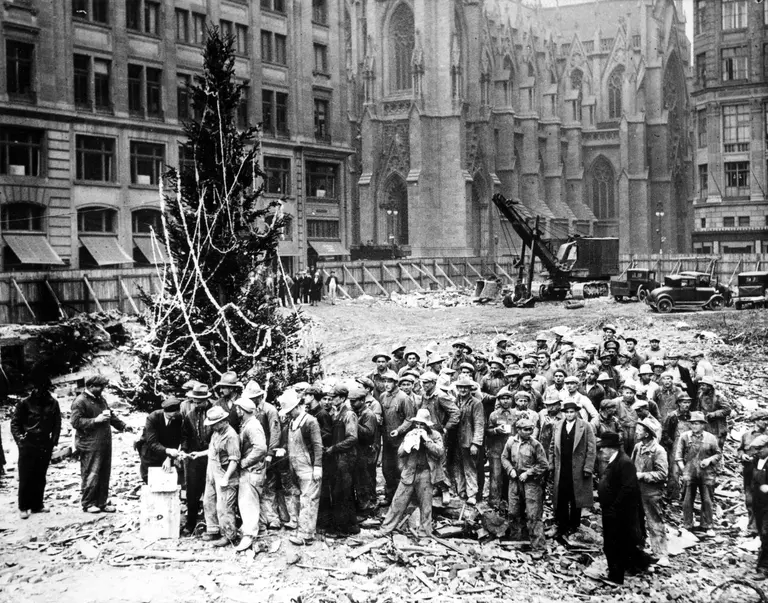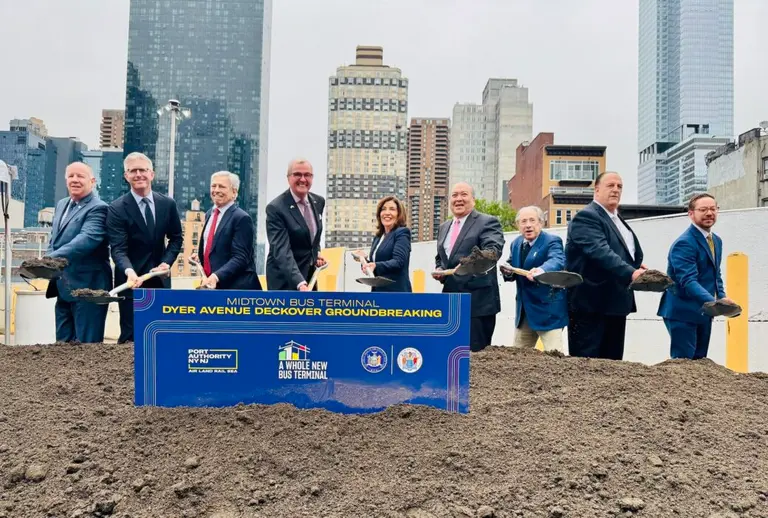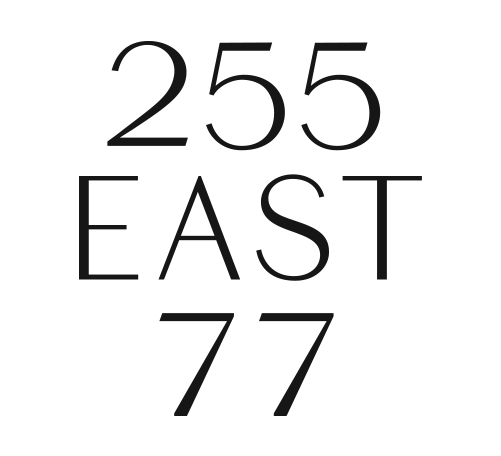Why are the tracks of the Times Square-Grand Central shuttle curved?
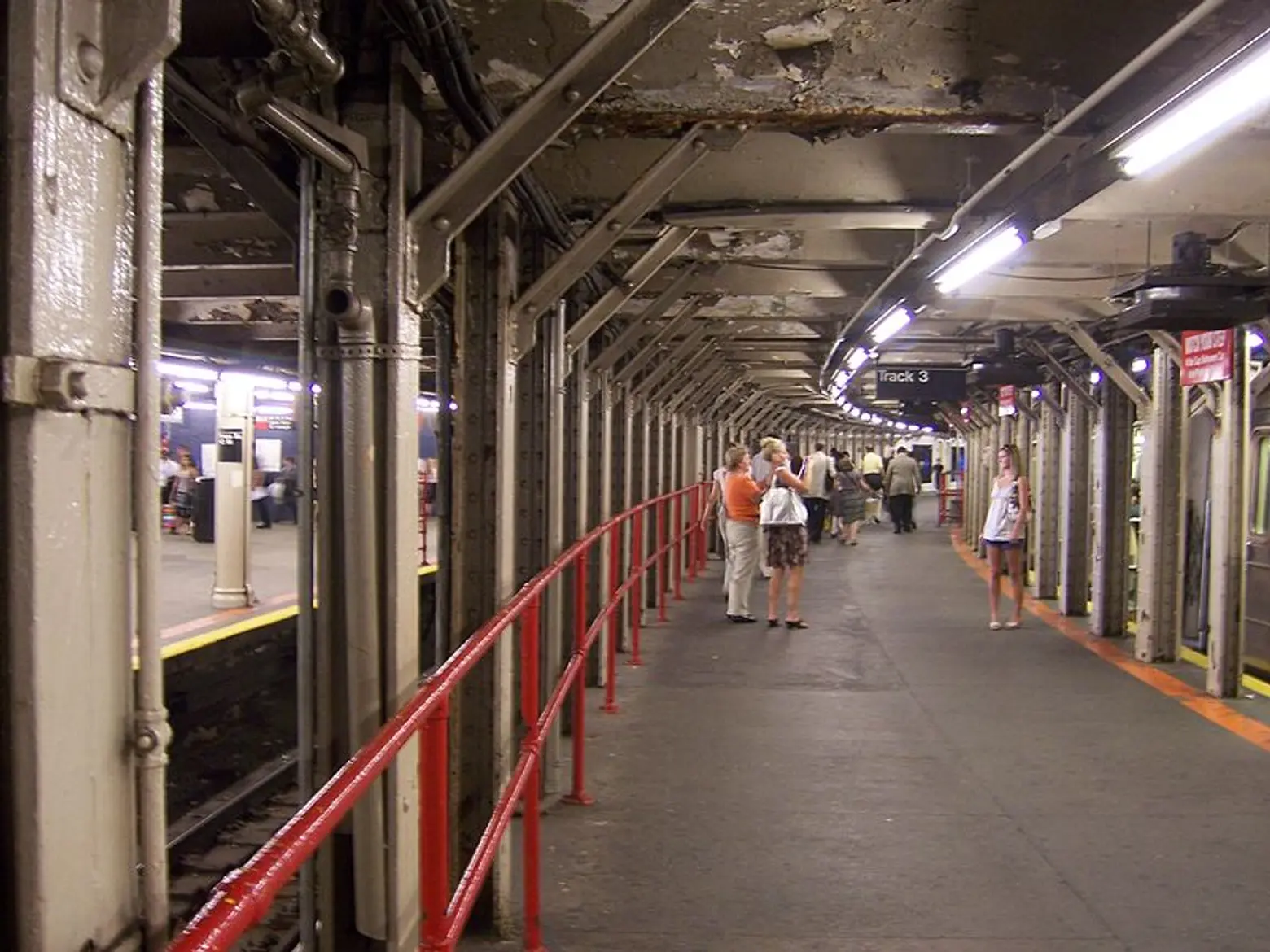
The Times Square shuttle platform, Photo by Helvetica Fanatic on Wikimedia
At the platform of the Times Square-Grand Central shuttle, a train track is hidden in plain sight. At both ends of the two-station line, tracks are numbered 1, 3 and 4, with no Track 2 to be found. As the New York Times explained, Track 2 once ran in its appropriate spot, between Tracks 1 and 3, but was taken out of operation nearly 100 years ago. After an attempt to expand the original 1904 line turned to major confusion for commuters, transit officials covered Track 2 with wooden flooring to make it easier for New Yorkers to walk to the new tracks.
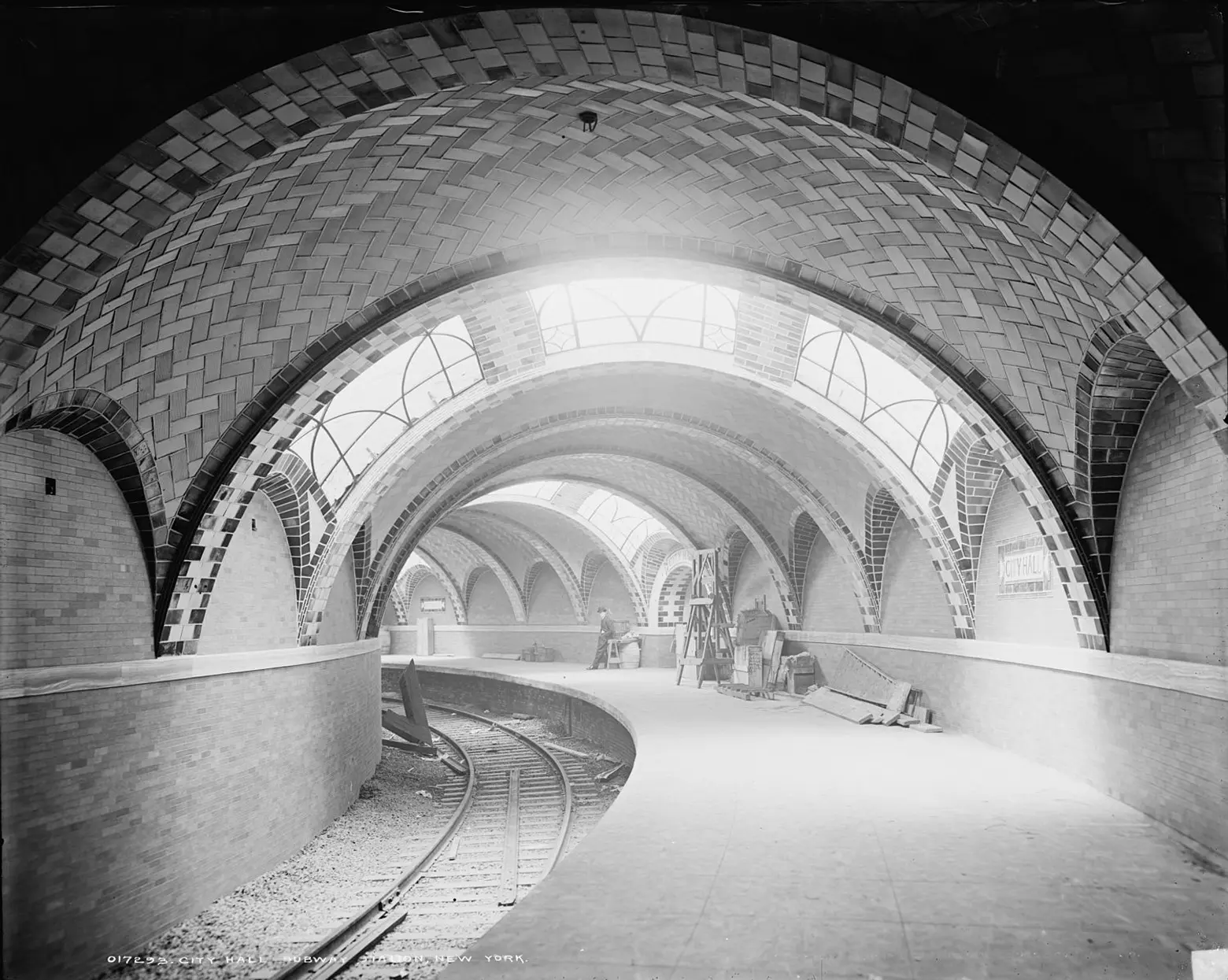
The City Hall station under construction, Photo courtesy of the Library of Congress
When the subway first opened on October 27, 1904, the original line opened with the beautiful, now shuttered, City Hall station. It ran from that station, which sat underneath City Hall Park, to 145th Street in Harlem in about 15 minutes. The city’s first official subway consisted of just a single line with 28 stations.
On this line, southbound trains made a sharp turn east around 44th Street and Broadway and beneath 42nd Street before turning south underneath Park Avenue. This explains the abrupt, curved tracks you might notice at the Times Square shuttle. This middle segment, known as the “Z” system due to its shape, came to be after a court ruled that building directly down Broadway to City Hall would be too expensive.
In the subway’s first few years of existence, the Times Square-42nd Street station only serviced local stops. At the time, Track 2 trains ran downtown express trains, never stopping at the Times Square station. As the city’s population grew, so did the need for a larger transit system. The city planned two expansions from the original line, with one continuing south from Times Square under Seventh Avenue and one moving north from Grand Central, under Lexington Avenue. Known as the “H” system, the newly expanded line opened on August 1, 1918.
Riders were immediately confused by the new configuration. With so many commuters following their old commute, huge crowds formed on the shuttle platforms. One day later, officials suspended shuttle service.
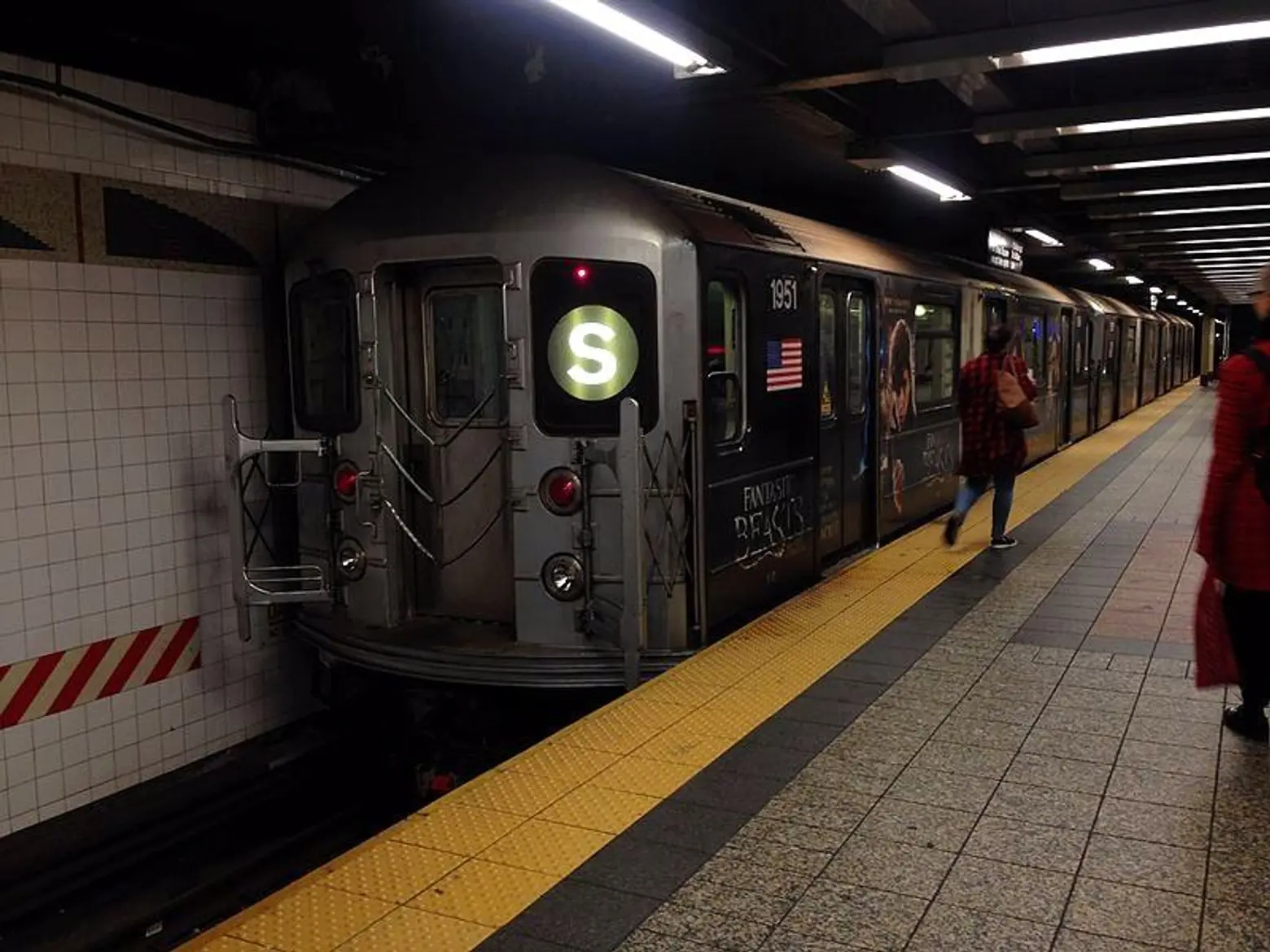
The 42nd Street Shuttle today, via Wikimedia
While officials almost totally shut down the shuttle, they ultimately decided to fix it instead. Signs were improved, passageways were added and Track 3 became an additional track for the shuttle. Track 2 ended up being covered with wood to let commuters walk across to the new track. After these fixes, the shuttle opened again without issues.
Remnants of Track 2 can still be seen today. In the tunnel between the two stations, it becomes clear where the missing track should be. As the Times writes, “The void is obvious, and somewhat bizarre–as if someone simply forgot to lay down rails.”
And the 100-year-old 42nd Street Shuttle will soon get a modern upgrade that aims to make it easier for commuters to navigate, the MTA announced last summer. The shuttle terminal will get replaced with a larger, fully accessible station. The existing three-track system will be consolidated into two tracks on one-platform.
“Making our system accessible and easier to use for all New Yorkers is essential to modernizing the MTA, and this 42 St Shuttle transformation project is another example of our progress. Instead of simply fixing the most urgent conditions, we’re taking this opportunity to truly transform the 42 St Shuttle,” MTA Managing Director Veronique Hakim said in a statement last year.
[Via NY Times]
RELATED:
